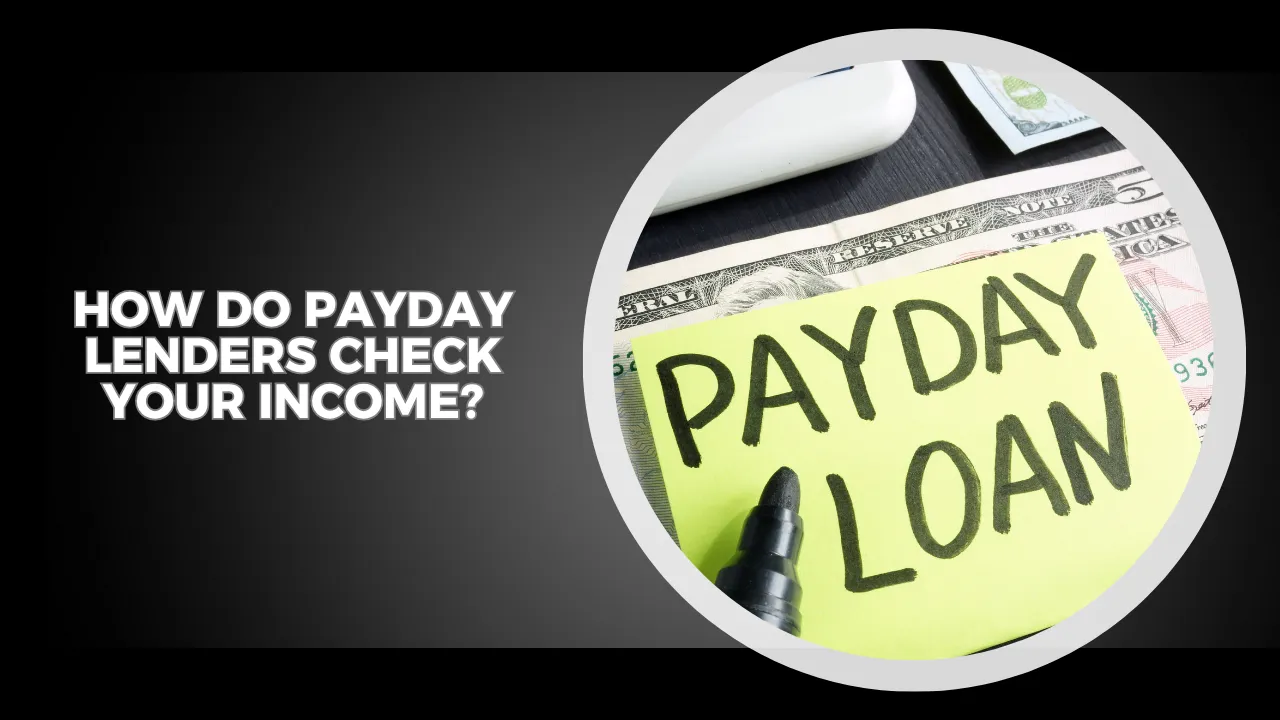When applying for a payday loan, most borrowers are curious about how lenders actually verify their income. After all, payday loans are known for their speed and accessibility — some are approved within hours. But even with quick decisions, lenders still have a legal and ethical obligation to ensure borrowers can realistically repay what they borrow. That means income verification isn’t optional; it’s an essential part of the process.
In the UK and other regulated markets, payday lenders must comply with strict affordability and credit assessment rules set by financial authorities. They can’t just hand out money on trust alone — they need proof of your ability to repay. Let’s explore how that process works, why it matters, and what it means for you as a borrower.
Why Payday Lenders Verify Income
The core principle behind payday loans is short-term borrowing. These loans are designed to cover emergency expenses or cash shortfalls until your next payday. Because they’re often unsecured (meaning there’s no collateral), lenders rely entirely on your income and financial stability to assess risk.
Income verification helps lenders answer two key questions:
-
How much money do you make?
-
How consistent is your income?
They use this information to determine how much you can borrow and what repayment schedule is realistic. For borrowers, this protects against over-borrowing — taking on more debt than you can manage. For lenders, it reduces the likelihood of default, ensuring the loan remains profitable and compliant with regulatory standards.
In the UK, payday lenders are regulated by the Financial Conduct Authority (FCA), which requires them to conduct affordability checks before lending. These checks include verifying income, reviewing expenses, and assessing overall financial health.
The process can vary slightly between companies, but whether you apply online or in person, the goal remains the same: confirming that your take-home pay can support repayment without leaving you in financial hardship.
How Payday Lenders Check Income in Practice
The specific methods payday lenders use to verify your income can depend on the lender, the loan size, and the information you provide during your application. Traditionally, applicants would bring recent payslips or bank statements to verify their earnings. Today, the process is mostly digital — faster and more secure.
Some lenders request digital access to your bank account through open banking technology. This allows them to securely view your income and spending patterns directly from your account data, with your consent. Others may ask you to upload PDF statements or recent payslips for manual review.
Open banking has made this process significantly more efficient. Instead of waiting days for document verification, lenders can make real-time affordability decisions based on verified income data. This not only speeds up approvals but also reduces errors or falsified documents.
Many borrowers researching payday loans uk discover that the verification process isn’t meant to be invasive — it’s about ensuring responsible lending. By confirming genuine income, lenders can tailor loan limits and repayment options that match your financial capacity, preventing a cycle of debt.
What Information Lenders Look For
When reviewing your income, payday lenders don’t just look at the total amount you earn. They analyze a few key details to determine financial stability.
First, they check the frequency and consistency of your pay. A regular monthly salary from an employer is considered more stable than freelance or gig income, which can fluctuate. However, modern lenders increasingly recognize non-traditional income sources, such as self-employment earnings, gig work, or benefits, as long as they’re consistent and verifiable.
Second, lenders assess your average monthly inflow versus outflow. They look at how much money comes in and how much goes out for rent, bills, subscriptions, and other expenses. This helps them estimate your disposable income — the amount left after essentials — which determines how comfortably you can make repayments.
Finally, lenders verify the source of income. They ensure that it comes from legitimate, traceable employment or business activity. This step is crucial not only for risk assessment but also for compliance with anti-money laundering (AML) regulations.
The Role of Credit Checks and Affordability Assessments
Income verification doesn’t happen in isolation. Lenders usually pair it with credit checks and affordability assessments.
A credit check helps lenders understand your borrowing history — how you’ve handled credit cards, loans, or other financial commitments in the past. Even if your credit score is low, lenders are more interested in your ability to pay back this specific loan based on current circumstances.
Affordability assessments take both income and expenses into account. They calculate whether your disposable income comfortably covers the loan repayment. For instance, if you earn £1,800 per month but spend £1,600 on essentials, a £400 payday loan might still be manageable depending on the repayment schedule.
This dual approach ensures that payday lending remains responsible and transparent. It protects both sides: borrowers avoid taking on unaffordable debt, and lenders maintain compliance with FCA rules.
Self-Employed or Freelance Applicants
Not everyone has a regular payslip, and payday lenders recognize that. If you’re self-employed, a freelancer, or working multiple part-time jobs, lenders can still verify income using recent bank statements, tax returns, or invoices.
Open banking makes this process much smoother for non-traditional earners. Instead of providing stacks of paperwork, you can authorize secure access to your account history, which clearly shows deposits from clients or projects.
However, fluctuating income can affect the loan amount you’re offered. Lenders may provide a smaller sum or require additional proof of regular work before approval. Transparency and accurate documentation are your best allies in this situation.
How Long the Verification Process Takes
In most cases, income verification for payday loans takes only a few hours. Some automated systems can confirm eligibility instantly if all information checks out. Manual verification, such as reviewing uploaded payslips, may take up to one business day.
The key factor is how quickly you provide the required documentation or consent. Delays often happen when borrowers forget to upload statements or enter incorrect banking details. Being thorough and accurate can speed up the process considerably.
Once verified, funds are typically transferred to your account within minutes or hours, depending on the lender’s processing speed and your bank’s clearing time. This quick turnaround is one of the reasons payday loans remain popular for short-term emergencies.
Why Income Verification Protects Borrowers
It’s easy to view income verification as an obstacle, but in reality, it’s a form of protection. Without these checks, lenders could issue loans indiscriminately, pushing borrowers into unmanageable debt.
By verifying income, lenders ensure that borrowers only receive what they can reasonably afford to repay. This reduces the likelihood of missed payments, additional fees, or credit score damage.
Responsible lending also strengthens the payday loan industry’s reputation. It shows regulators and the public that lenders are prioritizing borrower welfare, not just profits.
Final Thoughts: Transparency Builds Trust
Understanding how payday lenders check income helps demystify the borrowing process. Whether through payslips, bank statements, or open banking data, the goal is always the same: to confirm you can repay what you borrow without financial strain.
For borrowers, transparency and honesty go a long way. Providing accurate information and cooperating with verification steps can lead to faster approvals, better loan terms, and a smoother borrowing experience.
As payday lending continues to evolve with technology and stricter regulation, income verification will remain central to fair and responsible lending. When used correctly, it ensures that payday loans serve their intended purpose — a short-term financial bridge, not a long-term burden.









